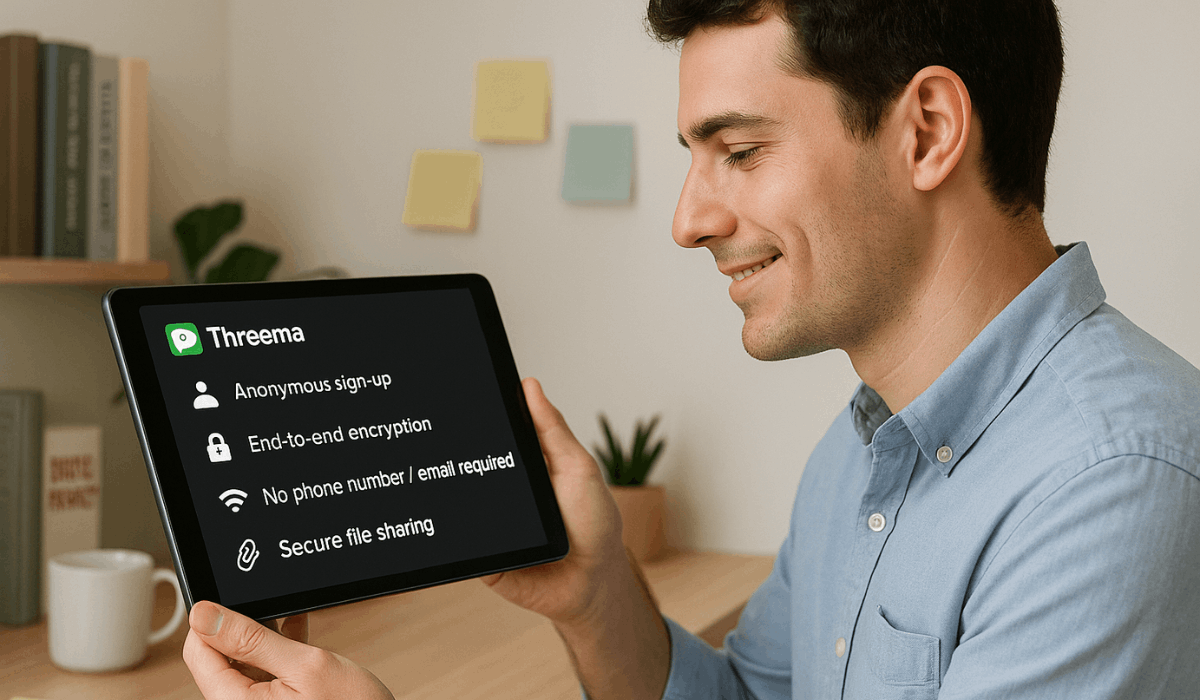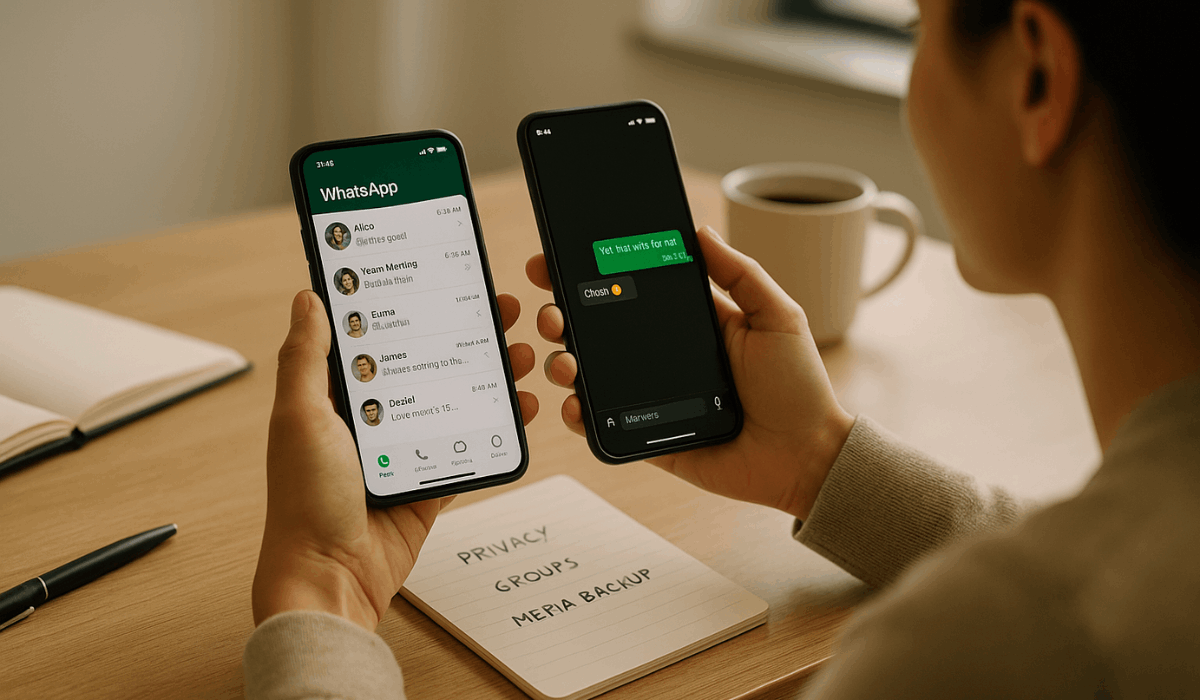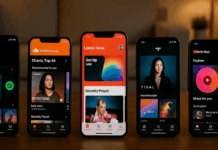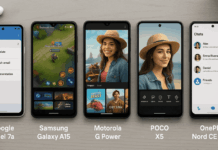WhatsApp remains one of the most widely used messaging apps, but it’s no longer the only strong option.
In 2025, users are increasingly exploring alternatives that offer better privacy, unique features, or more control.
If you’re ready to try something new, here are the top WhatsApp alternatives worth considering this year.
Why Look Beyond WhatsApp?
WhatsApp is widely used, but privacy concerns and feature limits drive users to seek alternatives.
Here’s why you might want to try a different messaging app in 2025:
- Privacy Concerns – WhatsApp shares user data with Meta, raising questions about how your information is handled.
- Lack of Custom Features – Users often want features like advanced group tools, message scheduling, or multiple profiles, which WhatsApp lacks.
- App Restrictions or Bans – WhatsApp has faced temporary or permanent restrictions in some regions.
- File Sharing Limits – WhatsApp caps file sizes and media quality, which can be frustrating for professionals or content creators.
- No Multi-Device Independence – Unlike other apps with true cross-device support, you still need your phone connected for full access.
- Desire for Decentralization – Some users prefer open-source or decentralized apps that big tech firms don’t control.
Best WhatsApp Alternatives in 2025
With more users exploring new messaging options, several apps have emerged as strong WhatsApp competitors in 2025.
Whether you’re looking for better privacy, more features, or smoother group communication, these alternatives offer something different.
Here are the top messaging apps to consider:
Signal
Signal is a secure messaging app focused on privacy, using open-source end-to-end encryption.
It’s widely trusted for personal and professional communication without data tracking.
Why It Stands Out:
- No ads or trackers
- Open-source and independently funded
- Strong reputation for privacy
Top Features:
- End-to-end encrypted chats and calls
- Disappearing messages
- Minimal data collection
Who It’s For:
- Privacy-first users
- Journalists and activists
- Anyone seeking secure, ad-free messaging
Telegram
Telegram is a cloud-based messaging app known for fast delivery, massive group chats, and media sharing.
It balances casual and community use with growing privacy tools.
Why It Stands Out:
- Supports huge group chats
- Offers public channels and bots
- Cross-device sync without phone requirement
Top Features:
- Secret chats with encryption
- Custom stickers and themes
- Cloud storage for messages and media
Who It’s For:
- Community managers
- Creators and influencers
- Users who enjoy customization and speed
Discord
Originally for gamers, Discord was now a go-to platform for group communication through voice, video, and text on customizable servers.
Why It Stands Out:
- Real-time voice channels
- Highly organized server structure
- Growing non-gaming communities
Top Features:
- Voice and video rooms
- Custom roles and permissions
- Integration with tools like Spotify and YouTube
Who It’s For:
- Gamers and streamers
- Online communities
- Remote teams and study groups
Viber
Viber is a messaging and calling app with a global presence, offering end-to-end encryption and low-cost international calls.
Why It Stands Out:
- Built-in voice and video calling
- Strong user base in Asia and Europe
- Fully encrypted communication
Top Features:
- Free HD calls
- Stickers and GIFs
- Community chats
Who It’s For:
- International callers
- Families and friends abroad
- Users who value voice and video quality

Threema
Threema is a paid messaging app based in Switzerland that emphasizes user anonymity and secure communication without requiring a phone number.
Why It Stands Out:
- No phone or email is required
- Servers hosted in Switzerland
- Not ad-supported
Top Features:
- Encrypted group chats
- Polls and file sharing
- Anonymous login
Who It’s For:
- Security-conscious users
- Enterprises with strict data policies
- Users avoiding big tech apps
Session
Session is a decentralized and privacy-preserving messaging app that doesn’t use phone numbers or central servers.
Why It Stands Out:
- Built on blockchain technology
- No metadata retention
- Fully anonymous
Top Features:
- Anonymous account creation
- Onion routing for messages
- Decentralized network
Who It’s For:
- Privacy advocates
- Whistleblowers and journalists
- Users in restricted regions
Element (Matrix)
Element is a secure, open-source chat app built on the Matrix protocol. It offers decentralized communication for individuals and teams.
Why It Stands Out:
- Fully open-source
- Self-hosting supported
- Bridges with other apps (Slack, WhatsApp)
Top Features:
- End-to-end encryption
- File sharing and video calls
- Federation with other Matrix servers
Who It’s For:
- Developers and tech-savvy users
- Teams needing secure collaboration
- Organizations seeking full control
Bridgefy
Bridgefy is an offline messaging app that works via Bluetooth mesh networks. It is ideal for areas without internet or during emergencies.
Why It Stands Out:
- Works without Wi-Fi or mobile data
- Ideal for natural disasters or protests
- No SIM card needed
Top Features:
- Peer-to-peer messaging
- Bluetooth mesh network
- Offline group chat support
Who It’s For:
- Protesters and activists
- Travelers in remote areas
- Emergency response teams
Key Factors to Consider When Choosing a Messaging App
Before choosing a messaging app, focus on the features—privacy, group tools, or device support.
Here are the key points to help you decide in 2025:
- Privacy and Encryption: Choose apps with end-to-end encryption and strong privacy policies.
- User Interface and Usability: The app should be easy to navigate, even for beginners.
- Cross-Platform Compatibility: Make sure it works well on Android, iOS, desktop, and web.
- Voice and Video Call Quality: Look for apps with stable and clear calling features.
- Group Chat Features: Check if it supports large groups, admin tools, and media sharing.
- File Sharing Limits: Some apps limit file sizes or compress media—important for frequent sharers.
- Offline or Low-Data Use Options: Useful in areas with weak internet or for saving data.
- Account Setup Requirements: Decide if you’re okay linking your phone number or prefer anonymous sign-up.
- Backup and Sync Options: Ensure it allows chat backups and syncing across devices.

Transitioning From WhatsApp – What to Expect
Not all messaging apps offer the same features. Before leaving WhatsApp, consider what matters most: privacy, ease of use, or device support.
Here are the key factors to consider in 2025:
- Privacy and Encryption: Choose apps with end-to-end encryption and no data selling.
- User Interface and Usability: Pick an app that’s simple and easy to use.
- Cross-Platform Compatibility: Make sure it works smoothly on all your devices.
- Voice and Video Call Quality: If you use them often, test for clear, stable calls.
- Group Chat Features: Look for considerable group support, admin tools, and media sharing.
- File Sharing Limits: Check if there are limits on file size or media quality.
- Offline or Low-Data Use Options: Some apps work offline or use less data—great for weak connections.
- Account Setup Requirements: Choose between phone number sign-ups or anonymous use.
- Backup and Sync Options: Ensure the app lets you back up and sync chats easily.
- Community and Ecosystem: It’s easier if people you know already use the app.
Using Multiple Messaging Apps – A Growing Trend
In 2025, people will often use multiple messaging apps for work, family, and social life.
Each app serves a different purpose, offering more privacy, features, and flexibility. Here are five reasons why this trend is growing:
- Different Apps for Different Purposes – People use one app for privacy (like Signal), another for communities (like Discord), and others for channels (like Telegram).
- Separation of Personal and Work Life – Apps like Slack are for work, while WhatsApp or Messenger handle personal chats.
- Access to Unique Features – Some apps offer better file sharing, offline messaging, or large group tools.
- Backup for Outages or Restrictions – Using multiple apps keeps you connected if one goes down or gets blocked.
- Following Where Others Are – Users often join apps that their friends, family, or teams already use.
The Bottomline
WhatsApp is still valuable, but it’s no longer the only option.
In 2025, many messaging apps will offer better privacy, features, and flexibility to suit different needs.
Try a few of these WhatsApp alternatives today and see which one works best for you.









